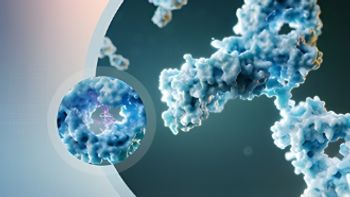
ASMS 2023: A Look at the Wednesday Afternoon Oral Session on Non-targeted Analysis in Environmental Applications
Today from 2:30–4:30 pm, an oral session on non-targeted analysis and emerging environmental contaminants will take place. We preview this session here.
From 2:30–4:30 pm, an oral session will be held in General Assembly C, titled “Environmental: Non-Target Analysis and Emerging Contaminants”. Led by Session Chair Imma Ferrer of the University of Colorado Boulder, this will focus on different factors that must be considered during environmental analysis.
The session will begin with a 2:30 pm talk led by Logan C. Krajewski of the Centers for Disease Control and Prevention in Atlanta, Georgia. This will focus on identifying the toxins of harmful algal blooms with high resolution mass spectrometry.
Next, the 2:50 pm talk, led by Brandon Bills of Thermo Fisher Scientific, in San Jose, California, will discuss library matching in real-time for guided data-dependent HRAM analysis of unknown PFAS.
Subsequently, the 3:10 pm talk will be led by Lei Tian of McGill University in Ste-Anne-de-Belleuve, Quebec, Canada. The main topic will be non-targeted identification of chemical markers to authenticate honey botanical origin using LCQTOF-MS.
Following this will be the 3:30 pm talk, led by Maxwell L. Harsha of the University of New Orleans in New Orleans, Louisiana. Harsha will be discussing his team’s efforts to uncover the fate of high latitude oil spills using non-target LC-Orbitrap analysis of hydrocarbon oxidation products.
The 3:50 pm talk, led by David Dukes of Stony Brook University in Stony Brook, New York, will focus on tissue distributions and metabolism of known and novel PFASs in mice dosed with a complex aqueous film-forming foam (AFFF) mixture.
Finally, at 4:10 pm, Christine M. Fisher of the FDA Center for Food Safety in College Park, Maryland, will host a talk on striving toward wider accessibility of a non-targeted standard/quality control mixture for more reliable method development/assessments.
Newsletter
Join the global community of analytical scientists who trust LCGC for insights on the latest techniques, trends, and expert solutions in chromatography.




